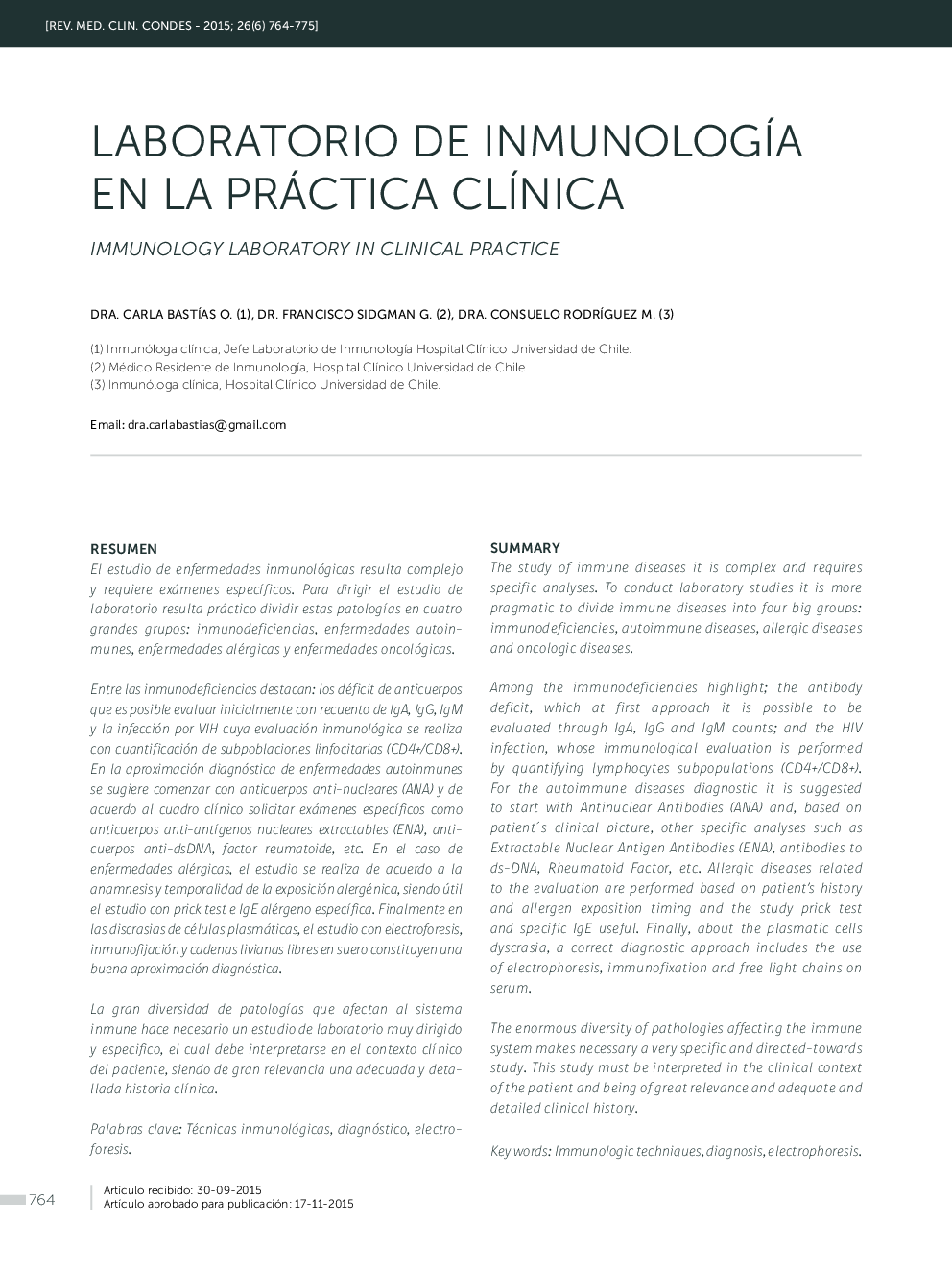| Article ID | Journal | Published Year | Pages | File Type |
|---|---|---|---|---|
| 3830032 | Revista Médica Clínica Las Condes | 2015 | 12 Pages |
RESUMENEl estudio de enfermedades inmunológicas resulta complejo y requiere exámenes específicos. Para dirigir el estudio de laboratorio resulta práctico dividir estas patologías en cuatro grandes grupos: inmunodeficiencias, enfermedades autoinmunes, enfermedades alérgicas y enfermedades oncológicas.Entre las inmunodeficiencias destacan: los déficit de anticuerpos que es posible evaluar inicialmente con recuento de IgA, IgG, IgM y la infección por VIH cuya evaluación inmunológica se realiza con cuantificación de subpoblaciones linfocitarias (CD4+/CD8+). En la aproximación diagnóstica de enfermedades autoinmunes se sugiere comenzar con anticuerpos anti-nucleares (ANA) y de acuerdo al cuadro clínico solicitar exámenes específicos como anticuerpos anti-antígenos nucleares extractables (ENA), anticuerpos anti-dsDNA, factor reumatoide, etc. En el caso de enfermedades alérgicas, el estudio se realiza de acuerdo a la anamnesis y temporalidad de la exposición alergénica, siendo útil el estudio con prick test e IgE alérgeno específica. Finalmente en las discrasias de células plasmáticas, el estudio con electroforesis, inmunofijación y cadenas livianas libres en suero constituyen una buena aproximación diagnóstica.La gran diversidad de patologías que afectan al sistema inmune hace necesario un estudio de laboratorio muy dirigido y especifico, el cual debe interpretarse en el contexto clínico del paciente, siendo de gran relevancia una adecuada y detallada historia clínica.
SUMMARYThe study of immune diseases it is complex and requires specific analyses. To conduct laboratory studies it is more pragmatic to divide immune diseases into four big groups: immunodeficiencies, autoimmune diseases, allergic diseases and oncologic diseases.Among the immunodeficiencies highlight; the antibody deficit, which at first approach it is possible to be evaluated through IgA, IgG and IgM counts; and the HIV infection, whose immunological evaluation is performed by quantifying lymphocytes subpopulations (CD4+/CD8+). For the autoimmune diseases diagnostic it is suggested to start with Antinuclear Antibodies (ANA) and, based on patient́s clinical picture, other specific analyses such as Extractable Nuclear Antigen Antibodies (ENA), antibodies to ds-DNA, Rheumatoid Factor, etc. Allergic diseases related to the evaluation are performed based on patient's history and allergen exposition timing and the study prick test and specific IgE useful. Finally, about the plasmatic cells dyscrasia, a correct diagnostic approach includes the use of electrophoresis, immunofixation and free light chains on serum.The enormous diversity of pathologies affecting the immune system makes necessary a very specific and directed-towards study. This study must be interpreted in the clinical context of the patient and being of great relevance and adequate and detailed clinical history.
